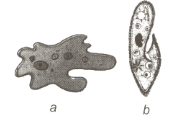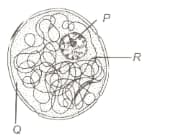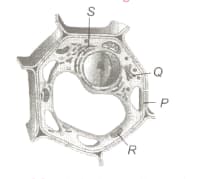Anil Ahlawat Solutions for Chapter: Cell, Exercise 1: EXERCISES
Anil Ahlawat Science Solutions for Exercise - Anil Ahlawat Solutions for Chapter: Cell, Exercise 1: EXERCISES
Attempt the practice questions on Chapter 8: Cell, Exercise 1: EXERCISES with hints and solutions to strengthen your understanding. NSO Science Olympiad Workbook Grade 8 solutions are prepared by Experienced Embibe Experts.
Questions from Anil Ahlawat Solutions for Chapter: Cell, Exercise 1: EXERCISES with Hints & Solutions
Which of the following is incorrect about the given figures?

Which of the following pairs are correctly matched?
(i) Protoplasm - Purkinje
(ii) Discovery of cell - Leeuwenhoek
(iii) Cell theory - Schwann
(iv) Omnis cellula-e-cellula - Virchow
(v) Nucleolus - Robert Brown
What is the major difference between a human skin cell and a human egg cell?
Refer to the given figure and select the correct statement regarding it.

(i) is the site of ribosome synthesis.
(ii) transfers the characteristics of a cell that are formed during cell division.
(iii) is a dense fluid like agranular substance.
(iv) contains DNA while contains RNA.
Select the option which correctly match the marked parts and in the given figure with the functions given below.

(i) Oxidation of food during cell respiration
(ii) Storage and secretion of substances from the cell
(iii) Allow minerals to pass through
(iv) Transport of substances within cell.
Endoplasmic reticulum is a network of interconnecting membranous structures filled with fluid. Which of the following cells would most likely have high concentration of densely packed rough endoplasmic reticulum?
Refer to the given paragraph.
X and Y are the two type of cells. The X have a well-organised nucleus which is separated from the cytoplasm by the nuclear membrane. On the other hand, Y do not have a true nucleus and their nuclear material is in direct contact with cytoplasm. Identify X and Y and select the correct option.
Which of the following statements is/are incorrect regarding genes?
(i) They control the transfer of hereditary characteristics.
(ii) Nucleolus carries all the genes.
(iii) They are part of chromosomes.
(iv) They are found only in the nucleus.
